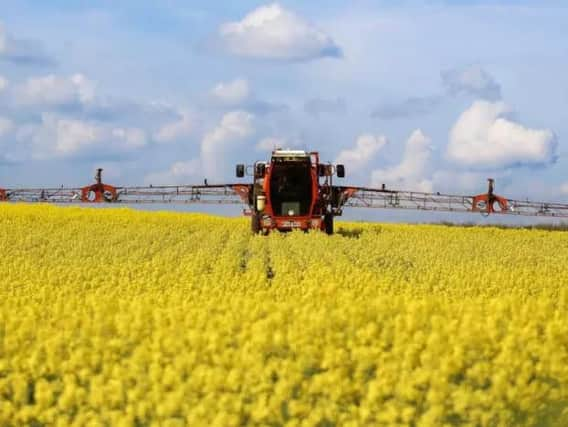'Extend rules to protect our farmers from the threat of being exploited'


Extending the remit of this successful regulator is a much-needed step that would support enterprise, competition and fairness in the groceries sector – from field to supermarket shelf.
The Groceries Code Adjudicator (GCA) was established in 2013 to prevent supermarkets purchasing unfairly from their suppliers. Specifically, it enforces a legal code that bans many practices that powerful businesses can use to dump risk and cost onto smaller businesses and suppliers. For instance, supermarkets are no longer able to delay paying suppliers, make deductions from suppliers’ invoice price or change crucial details of their orders at the last minute – damaging and exploitative practices.
Advertisement
Hide AdAdvertisement
Hide AdThe adjudicator is slowly having an impact on the number of businesses selling to supermarkets that are subjected to illegal purchasing practices.
However, the GCA’s remit is currently limited to the trading relationships between our biggest ten supermarkets and their direct suppliers – a group of roughly 3,000 businesses.
This means that the bulk of the groceries supplier sector, including the clear majority of farmers, are vulnerable to being subjected to unfair risks by the businesses to which they sell their produce. This gap in regulation is being exploited.
I have spoken to farmers who sell to supermarkets via an intermediary like an abattoir, packer or processor. This means that they are outside the remit of the GCA and currently without support when they are subjected to abusive purchasing practices. These include unilateral deductions to invoices, a blanket refusal to discuss contractual terms, and the threat of being delisted if they complain.
Advertisement
Hide AdAdvertisement
Hide AdIn one particularly alarming example, a buyer asked the farmer to supply a different variety of fruit after the crop had been planted, and on finding that such a change would not be possible, cancelled the original order.
Practices of this kind create serious obstacles for food manufacturers and farmers both in the UK and overseas. They bear down particularly hard on smaller businesses, setting higher barriers to entry, and ensuring the UK food market is less dynamic and productive than it could be.
This situation is not sustainable. Unfair purchasing practices make it impossible for suppliers to predict their income month to month, and means that there is less investment, and therefore less innovation, than would otherwise be the case. In the worst cases, competent businesses are driven to bankruptcy.
Recent statistics indicate at least 400 UK food businesses have been placed under severe financial stress by unfair purchasing practices since 2013.
Advertisement
Hide AdAdvertisement
Hide AdMeanwhile, some overseas suppliers are less willing to sell to the UK, as they know they will get a fairer deal elsewhere. Other effects of this include food waste, demand for cheaper and more insecure labour and a reduction in food quality.
At a time when the Brexit process is compelling the UK to re-examine its fundamental economic position, we cannot afford to have business growth, innovation and competition in such a vital sector constrained in this way.
The Competition Commission foresaw this situation. Back in 2008, when it proposed the establishment of the GCA in the first place, it also recommended that if ‘excessive risk and unexpected cost’ continued to be transferred up the supply chain, then the Government should extend the remit of the GCA to cover the whole supply chain.
This would be a sensible measure that carries several advantages. The GCA knows the sector, and has built up trust from suppliers. It has four years’ worth of experience investigating unfair purchasing practices in food supply chains, and it makes sense that it should apply that insight to indirect suppliers too. By completing the existing regulatory framework, it would provide a level playing field for every food supplier.
Advertisement
Hide AdAdvertisement
Hide AdIt has support from MPs across party lines, as well as from a range of unions, civil society and farming organisations including the NFU, the Tenant Farmers Association and Traidcraft.
Far from being unnecessary government interference, this would be an emphatically pro-business measure that would ensure the market functions more effectively for the benefit of consumers and producers alike.
Julian Sturdy is the Conservative MP for York Outer.